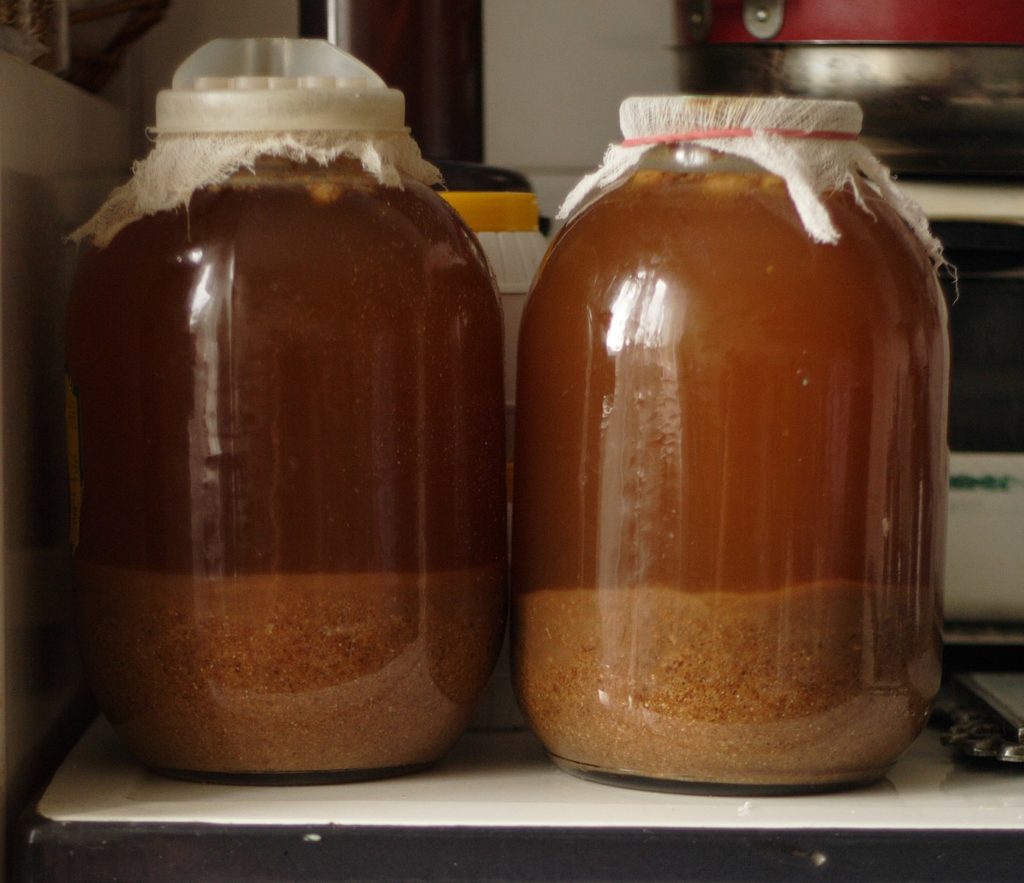
There’s more to Russian cuisine than the borscht and the pelmeni. Whenever my father would recount stories of his time studying in Moscow, he’d always mention one particular drink that never ceased to fascinate me: kvass.
Some call it “bread soda,” while others call it “Russian Coca-Cola.” Whatever the nickname, something about this sweet, yeasty drink has made it a staple in Russian and Slavic culture, capturing the hearts of Russians and beyond for the past thousand years.
It’s refreshing, it’s tangy, it’s good for your gut, and may very well be the next big thing after the kombucha craze in the early 2010s. Ready to level your fermented drink game up to the next level? Learn what Kvass is and why it’s good for you, with the added bonus of how to make your very own kvass from the safety of your home.
What is Kvass?
Kvass, sometimes spelled kvas, is a grain-based fermented non-alcoholic beverage, most notably made from rye or black bread. Alternative kvass recipes are made from beets or other fruits, but both recipes involve a fermentation process and result in a pungent and distinctly sour taste. Kvass is typically flavored with raisins or berries, and possesses a taste somewhere between beer and kombucha.
A Thousand+ Year Old Tradition
The first written mention of kvass dates back over 1,000 years in The Primary Chronicle of Kievan Rus, or Tale of Bygone Years. In the book, it mentions the baptism of Prince Vladimir featuring “food, honey in barrels, and bread-kvass.” Most linguists and archaeologists acknowledge, however, that the drink is even older—with some defending its existence as far back as ancient Egypt.
Later on in Russia’s history, kvass regained popularity under Soviet Russia when it became associated with Russian nationalism and patriotism. To this day, Kvass remains a wildly popular drink in Russia, estimated to generate hundreds of billions of roubles each year.
Kvass Health Benefits
In Russian history, Kvass has been touted for its healing properties and energizing effect. In fact, Russian soldiers were known to sip ladles full of kvass before entering the barracks during a cholera epidemic to protect against infectious diseases, clear their livers, and combat chronic fatigue. And while may be a bit of an exaggeration of kvass’ health benefits, scientists have linked kvass’ natural fermentation and probiotics to possible restoration of gut health and the overall well-being of your body.
In an animal study conducted in 2015 by Elżbieta Klewicka et al, Klewicka was able to show that the lactofermentation of beetroot juice from beet kvass led to a 17% ammonia reduction, increasing gut microflora and metabolic activity. Other supposed health benefits include the traditional benefits of a diet filled with vegetable / fruit drinks, such as improved cardiovascular health, weight loss, and overall improved gut health. Beets, in particular, have been linked to lowering one’s levels of firmicutes and proteobacteria, and heightening levels of bacteroidetes and cyanobacteria—which studies have connected with weight loss and gut health benefits.
A word of caution, however. While natural, homemade kvass contains many of the positive qualities listed above, an article written by NPR was quick to note the limitations of commercialized kvass.
In an interview, Russian writer, Alexander Genis, notes, “Nowadays, it’s almost impossible to drink real kvas in America. Because it’s not alive—it’s like difference like draft beer and bottled beer. All bottled kvas is basically water and sugar.”
To remedy that issue, I highly encourage you to take your own change at brewing your own kvass—and here’s how!
Make Your Own Kvass
While most recipes for a bread-based kvass recommend using a sourdough starter to start, my first attempt at making my own kvass involved following a starter-free recipe by Beets and Bones. While I appreciated this recipe’s ease and simplicity, as my ferment lengthened, I found the bread at the top growing suspiciously moldy and wound up throwing the batch out.
It may have been a fluke, but since then I’ve decided to take the longer route and go with starter or yeast-based recipes to avoid wasted ingredients. While I’m still perfecting my kvass-making system, I’ve found recipes like Practical Self Reliance’s DIY Kvass and Natasha’s Kitchen recipe to yield a more reliable result. For Beet Kvass, you can’t go wrong with most recipes, but The Kitchn’s fast and straight-forward method is a must-try for ease of use.
Whether you’re a fermented drink enthusiast or are looking to try something new, kvass is a delicious and health-packed drink that’s endured the test of time. Next time you’re looking for a new at-home project, grab some jars, sourdough starter, and get fermenting for this delicious and refreshing drink!
Also by Dana: How To Create The Perfect Vegan Charcuterie
Get more like this—Sign up for our daily inspirational newsletter for exclusive content!
__
Photo: Wikimedia Commons




